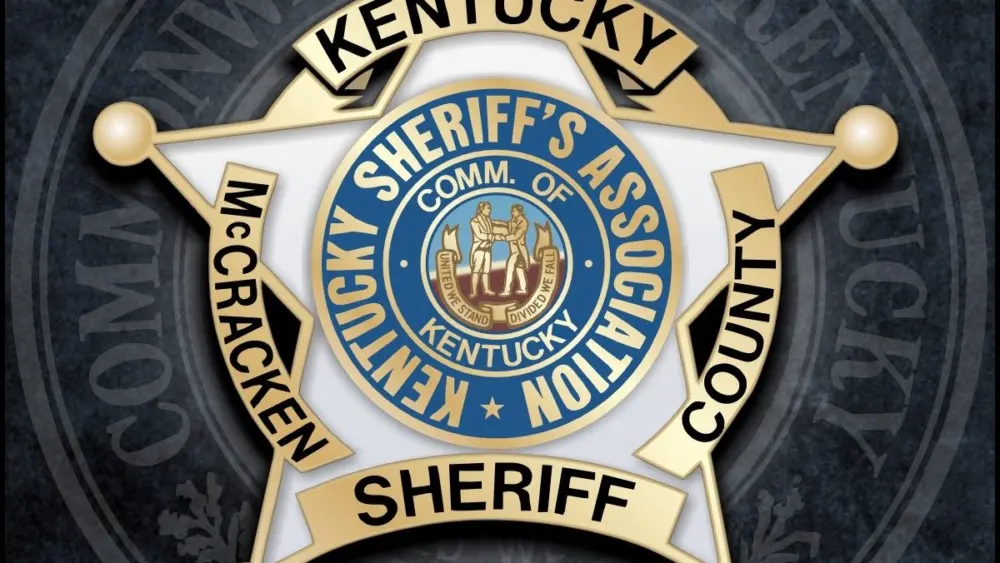 Legislative task forces provide preview of 2024 Regular Session priorities
Legislative task forces provide preview of 2024 Regular Session priorities
As a member of the General Assembly, I am often asked about our priorities for the upcoming session. While a few bills are drafted to address last minute issues, most of the legislation that becomes law is the result of months long of hard work, preparation and study by committees and working groups. During the 2023 Legislative Interim, the House and Senate developed seven task forces to study specific issues that will lead our agenda during the 2024 Regular Session.
Jail and Corrections Reform: Legislative leadership created the panel to focus on issues pertaining to financial and infrastructure issues facing the jail and corrections system of Kentucky as well as investigating the state’s policy on bail, and identifying both areas of improvement and potential solutions. Kentucky’s justice system has faced several significant challenges and problems over the years, and nowhere is that more obvious than the state’s prison and corrections system. Many of the state’s prisoners remain housed in county jails, leading to both overcrowding, financial strain, and concerns that the federal government may intervene. This task force, called for under the provisions of HCR 82, is studying existing jail and correctional facilities to determine if they are adequate and meet the state’s current and future needs. Members are also looking into pretrial and post-conviction data, as well as how the ability to post bail plays into pretrial release for those charged with various types of crimes.
The task force has met two times, hearing first from the Kentucky Association of Counties and the Kentucky Jailers Association. They both shared concerns on overcrowding in county jails. In the second meeting, members received an update from the Department of Corrections on their classification and work programs. The next meeting is scheduled to take place on August 28.
Multimodal Freight Transportation System Improvement: Legislative leadership created the task force to focus on issues pertaining to the various ways products and goods are moved in our freight transportation system. Chances are most of the goods in your home are delivered through this system, whether it be to you directly or to a store for purchase.
Members are studying and will make recommendations regarding infrastructure supporting the different modes of freight transportation within the Commonwealth, including roads, bridges, ports, air terminals, and transit terminals for trucking and air freight. Among its duties, the task force is working to identify gaps in services and existing facilities where backlogs exist and expansion is warranted. The House Majority Caucus has made improving infrastructure a priority, adopting strong road plans that are being executed in communities across the Commonwealth.
Thus far, the task force has met two times. In the first meeting, members examined the multimodal freight transportation system improvement study and discussed the return-on-investment issues in regards to the study. In the second meeting, the committee heard about riverport operations and issues. The next meeting is scheduled to take place on September 19.
Local Government Annexation: Legislative leadership created the panel to focus on issues pertaining to city annexation, as well as identifying both areas of improvement and potential solutions. With city annexation becoming an increasingly contentious issue in some areas of the commonwealth, members of the task force are delving into current statutory requirements, as well as consider the benefits and drawbacks of existing polices, on local governance. Members are exploring the effects of annexation on issues such as taxation, economic development, public safety, emergency services, and utilities.
Thus far, the task force has met one time. In the meeting, members discussed the current annexation laws and heard the perspective of the cities and counties. The next meeting is scheduled for August 25.
Lottery Trust Fund: Legislative leadership created the panel to focus on issues pertaining to the lottery budget, as well as identifying both areas of improvement and potential solutions. Stemming from HCR 34, the Lottery Trust Fund Task Force ensures scholarships and grants funded by the trust fund align with the state’s current and future educational needs. According to figures from the Kentucky Lottery Corporation, 21 cents of each dollar spent on lottery games is used to fund grants and scholarships through the Lottery Trust Fund. Since 1999, more than $4.4 billion in lottery proceeds have been directed to education. Those scholarships include the Kentucky Educational Excellence Scholarship (KEES), College Access Program, Dual Credit, Work Ready Scholarship, Kentucky National Guard Tuition Award Program, and the Kentucky Tuition Award Program. Lawmakers expanded eligible uses and increased access to KEES funding in 2023. The task force is continuing this work and will develop the findings into recommendations for the next legislative session.
Thus far, the task force has met three times. In the first meeting, members heard from the Kentucky Higher Education Assistance Authority. The committee received an overview on the use of lottery funds for scholarships and grants for Kentucky students looking to pursue higher education at an in-state school. In the second meeting, the committee heard from the Kentucky Council on Post-Secondary Education, the Kentucky Lottery Corporation, and the Kentucky Higher Education Assistance Authority. They discussed the importance of the scholarships to college students. During the third meeting, the committee heard from high school and college stakeholders regarding access to financial aid grants provided through the lottery fund. The next meeting is scheduled for September 21.
School and Campus Security: Legislative leadership created the panel to focus on issues pertaining to school safety, as well as identifying both areas of improvement and potential solutions. The task force results from conversations during session and a desire to keep school safety at the forefront after the landmark School Safety Act passed in 2019. This legislation developed and implemented a school safety coordinator training program. The program consists of instruction on policies and procedures for conducting emergency response drills using an all-hazards approach, identification of response to threats for school safety, and preparing for school safety security risks. The legislation also established the office of the state school security marshal to enhance school safety and create a school security risk assessment tool.
The task force is reviewing access to mental health services provided within school districts and review federal funding available to expand services. The School and Campus Safety Task Force is looking at what was implemented in SB 1 to ensure it is being carried out in order to keep Kentucky’s children safe while at school. This task force is crucial to ensuring Kentucky’s schools are safe and have the resources necessary to serve all students.
Thus far, the task force has met two times. In the first meeting, the committee received a presentation about the School Safety and Resiliency Act, which passed during the 2019 Regular Session. The measure was designed to boost school safety by improving the type of personnel, systems and structures and student culture in Kentucky’s schools. In the second meeting, members heard from the Kentucky Center for School Safety, Office of the State School Security Marshall, and the Kentucky Department of Education on student mental health. The next meeting is scheduled for September 19.
As always, I can be reached anytime through the toll-free message line in Frankfort at 1-800-372-7181. You can also contact me via e-mail at Chris.Freeland@lrc.ky.gov. You can also keep track of committee meetings and potential legislation through the Kentucky legislature’s home page at legislature.ky.gov.







